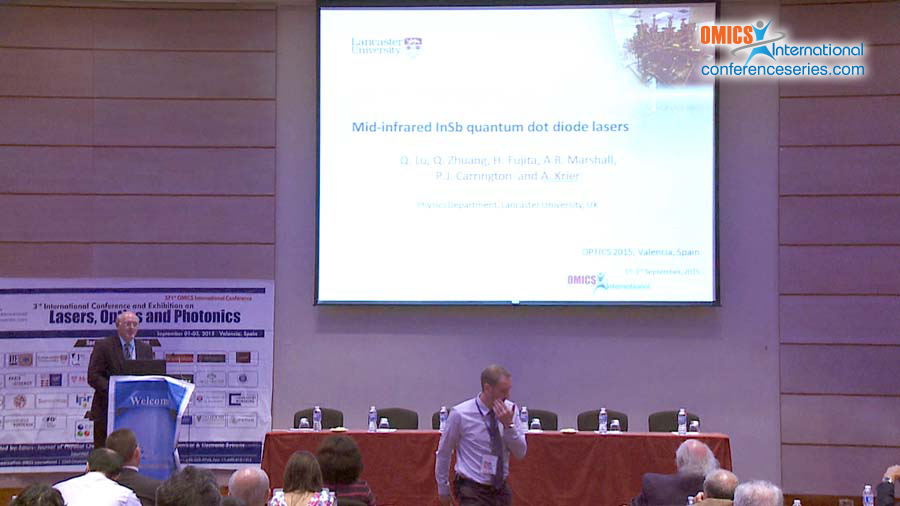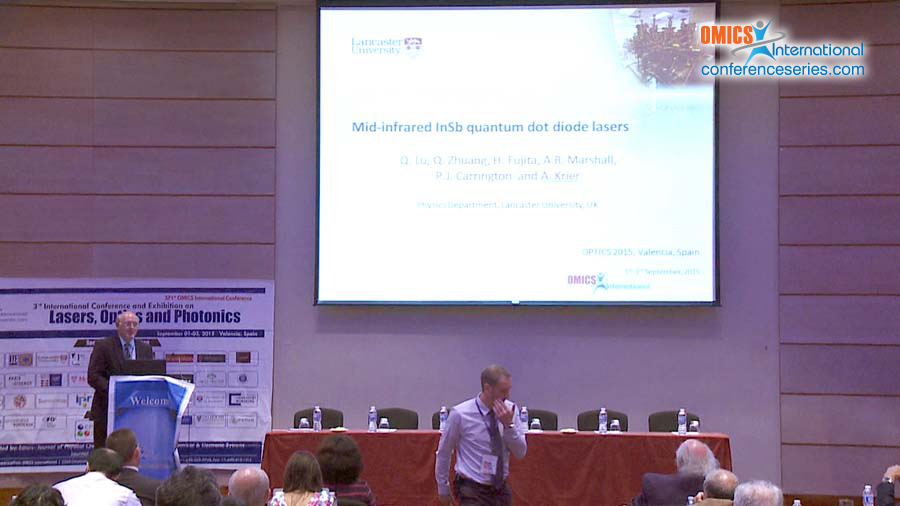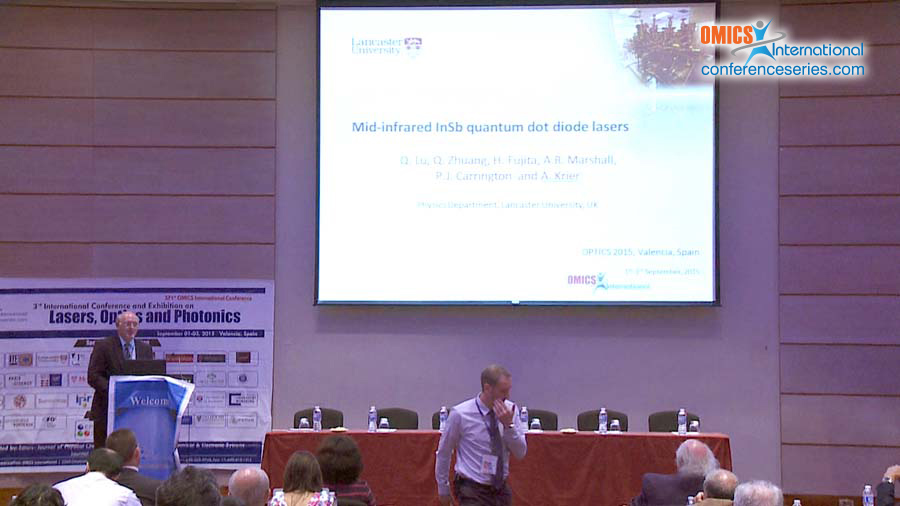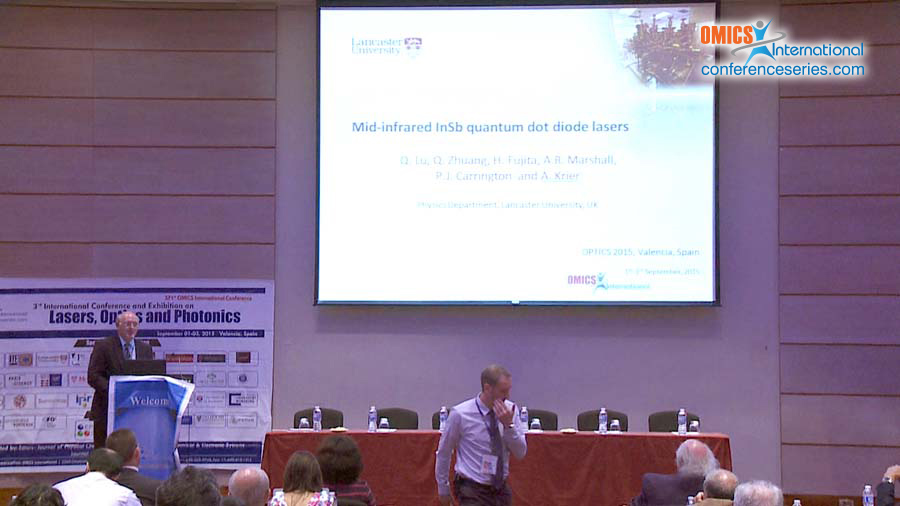
Biography
Biography: A. Krier
Abstract
The mid-infrared spectral range is technologically important for a variety of applications including gas sensing, optical spectroscopy, bio-medical diagnostics etc. Although type II InSb/InAs QDs have shown electroluminescence up to room temperature and are a promising candidate for diode lasers at wavelengths longer than 3 µm , there have been only a few reports of InSb QD lasers. In this work, we demonstrate coherent emission from InSb QDs at wavelengths between 3.02 µm and 3.11 µm at temperature, Tmax up to 120 K using pulsed excitation, with a threshold current density, Jth~1.6 kA cm-2 at 4 K. The gain and spectral tuning behaviour were also investigated.
We developed a hybrid laser structure containing ten sheets of sub-monolayer InSb QDs in an InAs waveguide sandwiched between a p-InAs0.61Sb0.13P0.26 lower cladding layer grown by liquid phase epitaxy and an n+ -InAs plasmonic upper cladding layer grown by MBE. Fig. 1 shows the laser peak blue shifts with increasing temperature when T<50 K. For T>50 K, the peak moves to longer wavelength as temperature increases. The modal gain of the laser was extracted from lasers with different cavity lengths resulting in a value of 29 cm-1, (or 2.9 cm-1 per InSb QD layer), which is close to that found in type II QW lasers emitting at similar wavelengths. The material gain was estimated to be 19 x104 cm-1, which is similar to that for type I QDs.




